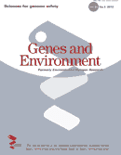
Genes and Environment
Scope & Guideline
Exploring the Nexus of Nature and Nurture
Introduction
Aims and Scopes
- Genetic and Environmental Interactions:
The journal investigates how genetic predispositions interact with environmental exposures to influence health outcomes, particularly in relation to cancer. - Molecular Mechanisms of Disease:
Research published in this journal frequently explores the molecular pathways involved in disease processes, including the role of genes, non-coding RNAs, and epigenetic modifications. - Toxicology and Genotoxicity Assessment:
A core focus is on the assessment of environmental toxins and their genotoxic effects, employing in vivo and in vitro methodologies to evaluate the impacts on human health. - Cancer Research and Biomarkers:
The journal contributes to the field of cancer research by identifying genetic mutations, biomarkers, and therapeutic targets, particularly in relation to environmental carcinogens. - Epidemiological Studies:
It encompasses epidemiological studies that examine the correlation between environmental factors and disease incidence, highlighting the relevance of population health.
Trending and Emerging
- Integrative Exposomics:
There is a growing emphasis on exposomics, which involves the comprehensive study of environmental exposures and their cumulative effects on health, particularly in relation to cancer risk. - Long Non-Coding RNAs:
Research on long non-coding RNAs (lncRNAs) has surged, highlighting their roles in gene regulation and disease processes, particularly in cancer biology. - Precision Medicine and Genomic Profiling:
The journal is increasingly publishing studies focused on precision medicine, utilizing genomic profiling to tailor treatments based on individual genetic and environmental factors. - Artificial Intelligence in Toxicology:
Emerging methodologies utilizing artificial intelligence and machine learning for predicting toxicological outcomes and assessing environmental risks are gaining traction. - Epigenetics in Disease Mechanisms:
There is an expanding interest in the role of epigenetic modifications in disease mechanisms, particularly in how these changes are influenced by environmental factors.
Declining or Waning
- Traditional Mutagenicity Testing:
There has been a noticeable reduction in studies focusing on conventional mutagenicity testing methods, as newer, more sophisticated techniques are being developed and adopted. - Single Environmental Factors:
Research concentrating exclusively on single environmental factors, without consideration of genetic interactions, has become less frequent, indicating a shift towards more integrative approaches. - Basic Toxicology Studies:
There is a decreasing trend in basic toxicology studies that do not link findings to broader genetic or epidemiological implications, as the field moves toward more applied, translational research.
Similar Journals

CHEMICAL RESEARCH IN TOXICOLOGY
Bridging chemistry and toxicology for impactful solutions.Chemical Research in Toxicology is a premier journal published by the American Chemical Society, dedicated to advancing the understanding of toxicological effects associated with chemical substances. Since its inception in 1988, this esteemed journal has maintained a robust impact factor, ranking in the Q1 quartile for both Medicine (miscellaneous) and Toxicology as of 2023, reflecting its significance and influence in the fields of pharmacology and toxicology. With an impressive Scopus ranking at #16 out of 133 in the Toxicology category, it serves as a vital resource for researchers, professionals, and students seeking cutting-edge insights and scholarly articles that bridge the gap between chemistry and toxicological science. Although not an open-access publication, it continues to provide comprehensive analyses and original research that inform safe chemical practices and regulatory policies, further enhancing its role in public health and safety.

Genes and Nutrition
Innovating at the Intersection of Diet and DNAGenes and Nutrition is a prominent open access journal published by BMC in the United Kingdom, dedicated to advancing knowledge at the intersection of nutrition, genetics, and human health. With the aim of making cutting-edge research available to a global audience, the journal has been a vital platform for sharing discoveries since its inception in 2007, and it continues to thrive with a convergence period extending to 2024. Recognized for its high-quality contributions, Genes and Nutrition is rated in the Q2 category within both Endocrinology, Diabetes, and Metabolism and Genetics as of 2023, reflecting its esteemed position in these fields (Scopus Ranks leaderboard places it at #72/244 and #109/347, respectively). This journal is an invaluable resource for researchers, professionals, and students alike, fostering collaboration and innovation in the understanding of how genetic factors influence nutrition and health outcomes. Accessible to all since 2016, it encourages dialogue and discovery, positioning itself as a leader in genetic and nutritional science.
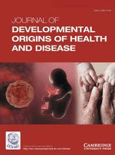
Journal of Developmental Origins of Health and Disease
Illuminating the Path from Development to WellnessThe Journal of Developmental Origins of Health and Disease is a premier academic publication under the esteemed Cambridge University Press, dedicated to advancing the understanding of how developmental processes influence health outcomes across the lifespan. With an ISSN of 2040-1744 and an E-ISSN of 2040-1752, this journal has established itself as a critical resource in the field of medicine, currently positioned in the Q2 category of Medicine (miscellaneous). Having converged from 2010 to 2024, this journal reflects a significant commitment to exploring the interconnections between early development and subsequent health conditions. Ranked 147 out of 398 in its category according to Scopus, it retains a commendable 63rd percentile status, highlighting its contributions to this rapidly evolving field. Though it does not offer open access, the journal remains a vital platform for researchers, professionals, and students interested in uncovering the intricate links between developmental biology and public health challenges.
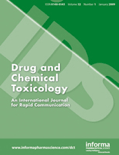
DRUG AND CHEMICAL TOXICOLOGY
Bridging disciplines for safer environments.Drug and Chemical Toxicology is a well-respected journal in the fields of toxicology, pharmacology, and public health, published by Taylor & Francis Ltd. Since its inception in 1978, this journal has diligently explored the effects and mechanisms of chemical exposures on health and the environment, fulfilling a crucial role in advancing scientific understanding and safeguarding public health. The journal is indexed across prestigious databases and features an impressive array of articles categorized within the Q2 and Q3 quartiles across various categories in 2023, reflecting its significance in Chemical Health and Safety as well as Environmental and Occupational Health disciplines. With an extensive reach and a focus on interdisciplinary research, Drug and Chemical Toxicology offers a rich repository of original research, reviews, and methodological advancements, catering to a diverse audience of researchers, professionals, and students dedicated to the betterment of safety and health standards. Although not an open-access publication, its articles are widely accessible to the academic community, ensuring that critical innovations and insights are shared for the greater good.
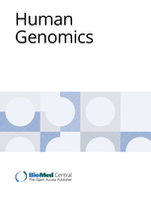
Human Genomics
Fostering Global Collaboration in Genetic StudiesHuman Genomics, published by BMC, is a leading open-access journal dedicated to advancing the field of genomics and its applications in health and disease. Since its inception in 2003, the journal has provided a vital platform for researchers to disseminate groundbreaking findings related to genetic research, contributing significantly to areas such as Drug Discovery, Genetics, Molecular Biology, and Molecular Medicine, as reflected in its Q1 and Q2 quartile rankings throughout 2023. With an ISSN of 1473-9542 and an E-ISSN of 1479-7364, Human Genomics not only delivers high-quality, peer-reviewed research but also ensures accessibility to a broader audience, empowering professionals, students, and academics to stay at the forefront of genomic science. Through its rigorous editorial standards and impactful publications, the journal fosters a collaborative environment for innovative research across the globe from its base in the United Kingdom. By promoting open access since its launch, Human Genomics continues to enhance the visibility and impact of genetic studies, making it an essential resource for anyone involved in the rapidly evolving field of human genomics.
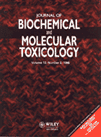
JOURNAL OF BIOCHEMICAL AND MOLECULAR TOXICOLOGY
Illuminating the Pathways of Biochemical and Molecular ScienceJournal of Biochemical and Molecular Toxicology, published by Wiley, plays a pivotal role in the advancement of knowledge within the fields of biochemistry, toxicology, and molecular biology. Established in 1998, this esteemed journal has garnered a significant reputation, evidenced by its current placement in the Q2 quartile across several categories, including Biochemistry, Health, Toxicology and Mutagenesis, and Medicine. With an ISSN of 1095-6670 and an E-ISSN of 1099-0461, it serves an international audience, offering critical insights and innovative research that shape our understanding of biochemical interactions and toxicological assessments. While it does not operate on an open-access model, the journal ensures rigorous peer review and high-quality publication standards, making it a valuable resource for researchers, professionals, and students dedicated to the exploration of molecular toxicology. The journal's recognized impact within the scientific community is reflected in its competitive rankings among specialized journals, fostering significant contributions to both academic and applied contexts.
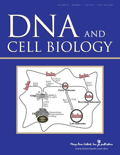
DNA AND CELL BIOLOGY
Illuminating the Path of Cellular AdvancementsDNA AND CELL BIOLOGY, published by Mary Ann Liebert, Inc, is a distinguished journal in the realms of cell biology, genetics, and molecular biology, holding a notable position in its Q3 and Q2 quartile rankings across multiple academic categories as of 2023. With an ISSN of 1044-5498 and an E-ISSN of 1557-7430, this journal has been a pivotal platform for the dissemination of cutting-edge research since its inception in 1990, extending its coverage through 2024. Situated in the United States, the journal offers high-quality peer-reviewed articles, exploring significant advancements in biological sciences while fostering interdisciplinary collaborations within the research community. Though it currently does not offer open access, subscribed institutions and individual readers benefit from its rich repository of knowledge. The journal's rigorous standards and impactful content make it an essential resource for researchers, professionals, and students alike, aiming to stay at the forefront of discoveries influencing DNA and cellular dynamics.
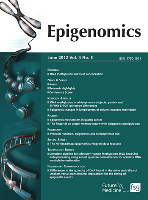
Epigenomics
Transforming Insights into Epigenomic Innovations.Epigenomics is a leading journal in the realms of Cancer Research and Genetics, published by Future Medicine Ltd in the United Kingdom. With an ISSN of 1750-1911 and an E-ISSN of 1750-192X, the journal has been an integral part of the scientific community since its inception in 2009, and is set to converge its impactful research publications through 2024. The journal occupies a significant position in its category quartiles as evidenced by its ranking—Q3 in Cancer Research and Q2 in Genetics as of 2023. With Scopus rankings of #138/347 in Genetics and #113/230 in Cancer Research, it demonstrates scholarly excellence and is recognized for its contributions to understanding the role of epigenetic modifications in health and disease. While Epigenomics operates under traditional subscription models, it remains a vital resource for researchers, professionals, and students eager to explore the complex interplay between genes and the epigenome. The journal's innovative approach to epigenetics and its impact on cancer research makes it essential reading for those at the forefront of biomedical research.
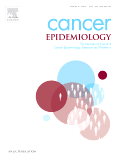
Cancer Epidemiology
Innovating Understanding of Cancer IncidenceCancer Epidemiology, published by ELSEVIER SCI LTD, serves as a premier platform for disseminating innovative research in the areas of cancer epidemiology and oncology. Operating from the Netherlands, this journal provides a critical insight into the factors influencing cancer incidence, including genetic, environmental, and lifestyle variables. With an impact factor reflecting its significance in the field, it holds a respectable Q2 ranking in Cancer Research, Epidemiology, and Oncology. The journal spans a wide range of topics and publishes studies that aim to bridge gaps in existing literature through rigorous research methodologies. Researchers and professionals interested in acquiring the latest insights and contributing to the evolving discourse on cancer epidemiology will find this journal an invaluable resource. Access to articles may be available through open access options, ensuring the widest dissemination of knowledge.
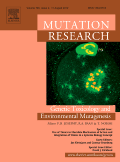
MUTATION RESEARCH-GENETIC TOXICOLOGY AND ENVIRONMENTAL MUTAGENESIS
Unraveling the complexities of mutagenic processes for a safer tomorrow.MUTATION RESEARCH-GENETIC TOXICOLOGY AND ENVIRONMENTAL MUTAGENESIS, published by Elsevier, is a renowned journal that explores critical advancements in the field of genetic toxicology and environmental mutagenesis. With an ISSN of 1383-5718 and an E-ISSN of 1879-3592, it ranks in Q3 for Genetics and Q2 for Health, Toxicology, and Mutagenesis as of 2023. This journal not only emphasizes the importance of environmental factors in genetic material alterations but also disseminates significant research findings that aid in understanding the implications for public health and safety. Operating from Amsterdam, Netherlands, it serves as a pivotal platform for researchers, professionals, and students, fostering an informed community keen on evolving the parameters of genetic research. Although it currently does not offer open access, the journal's commitment to high-quality peer-reviewed content ensures substantial contributions to the academic literature, enhancing our comprehension of mutagenic processes and their environmental triggers.